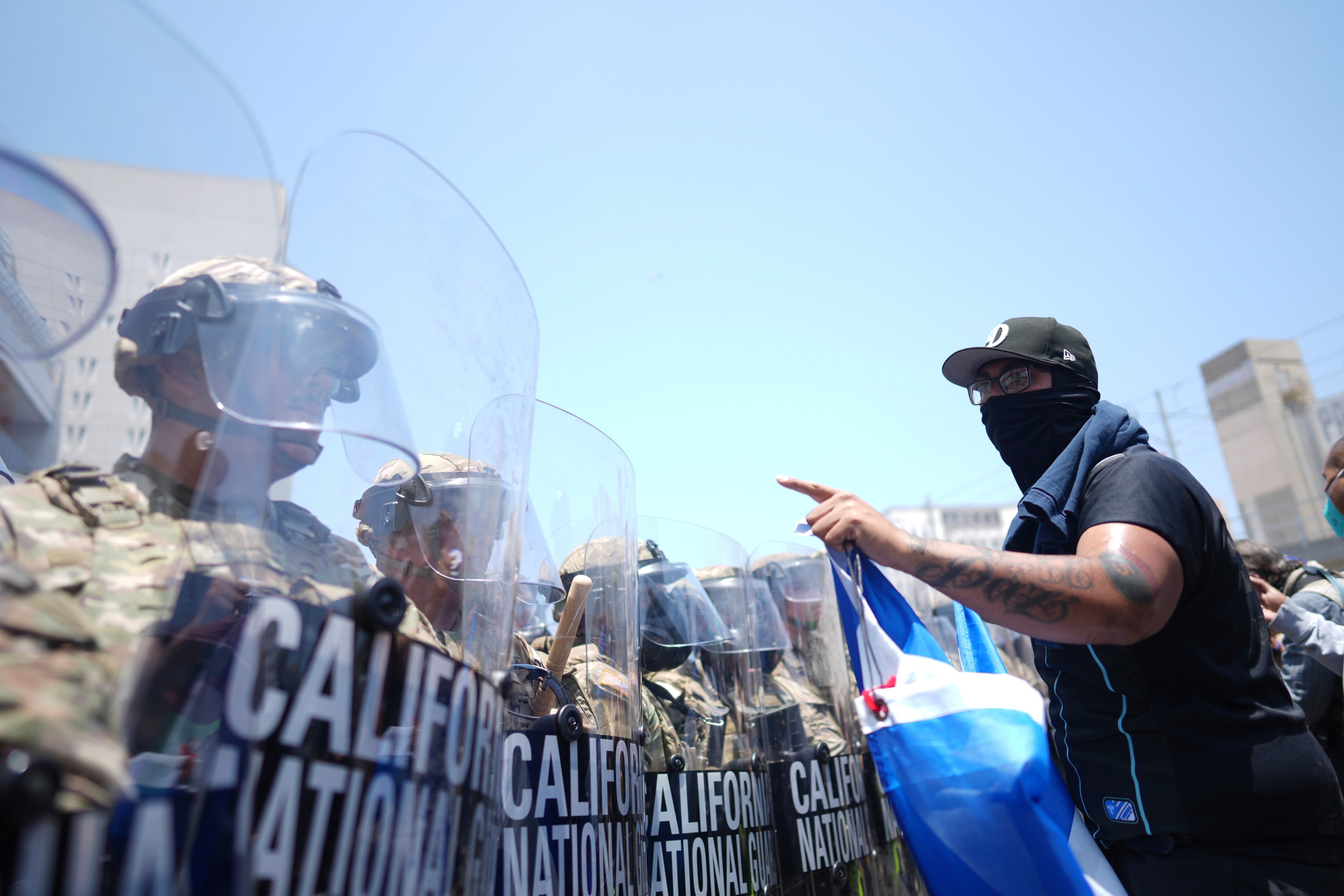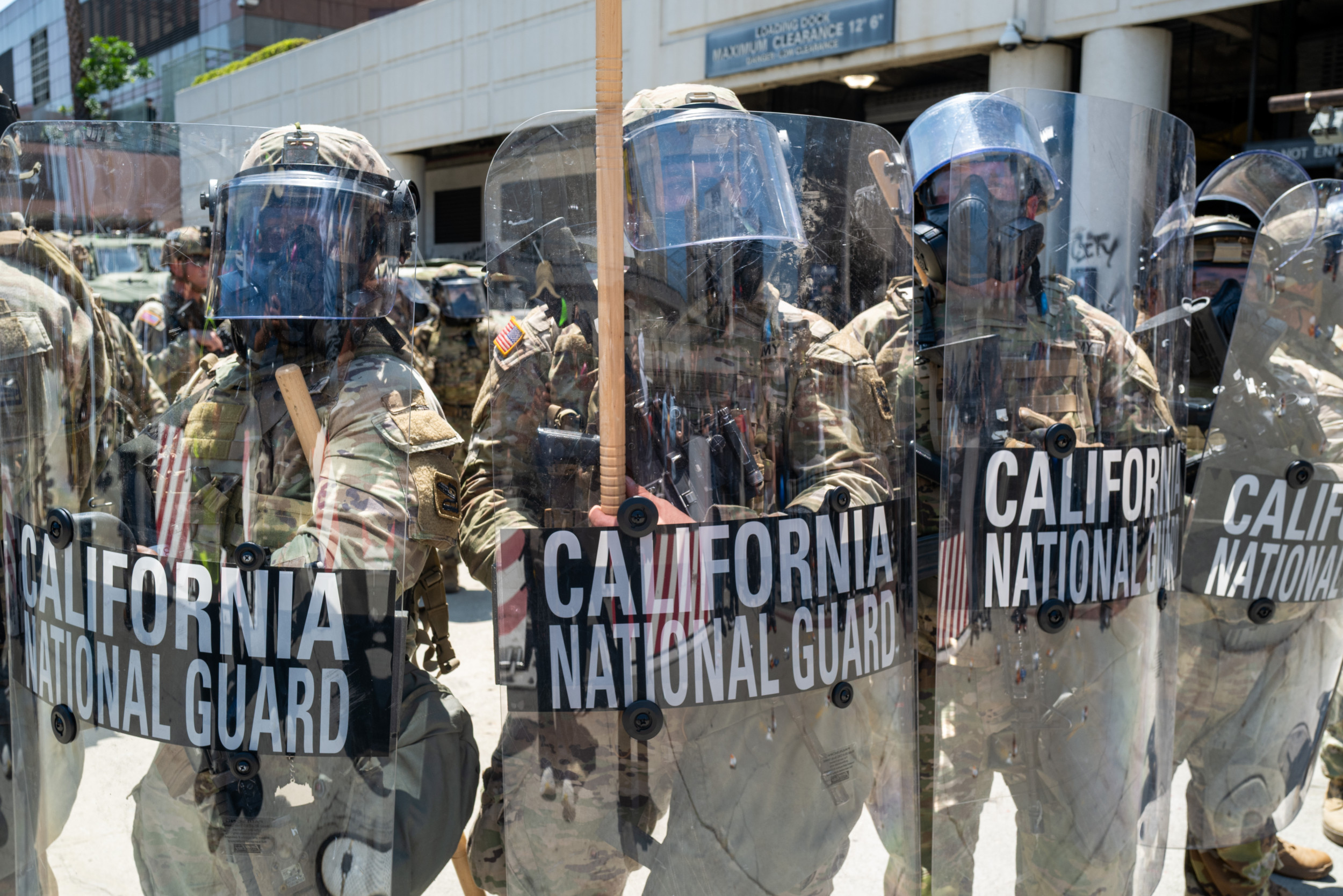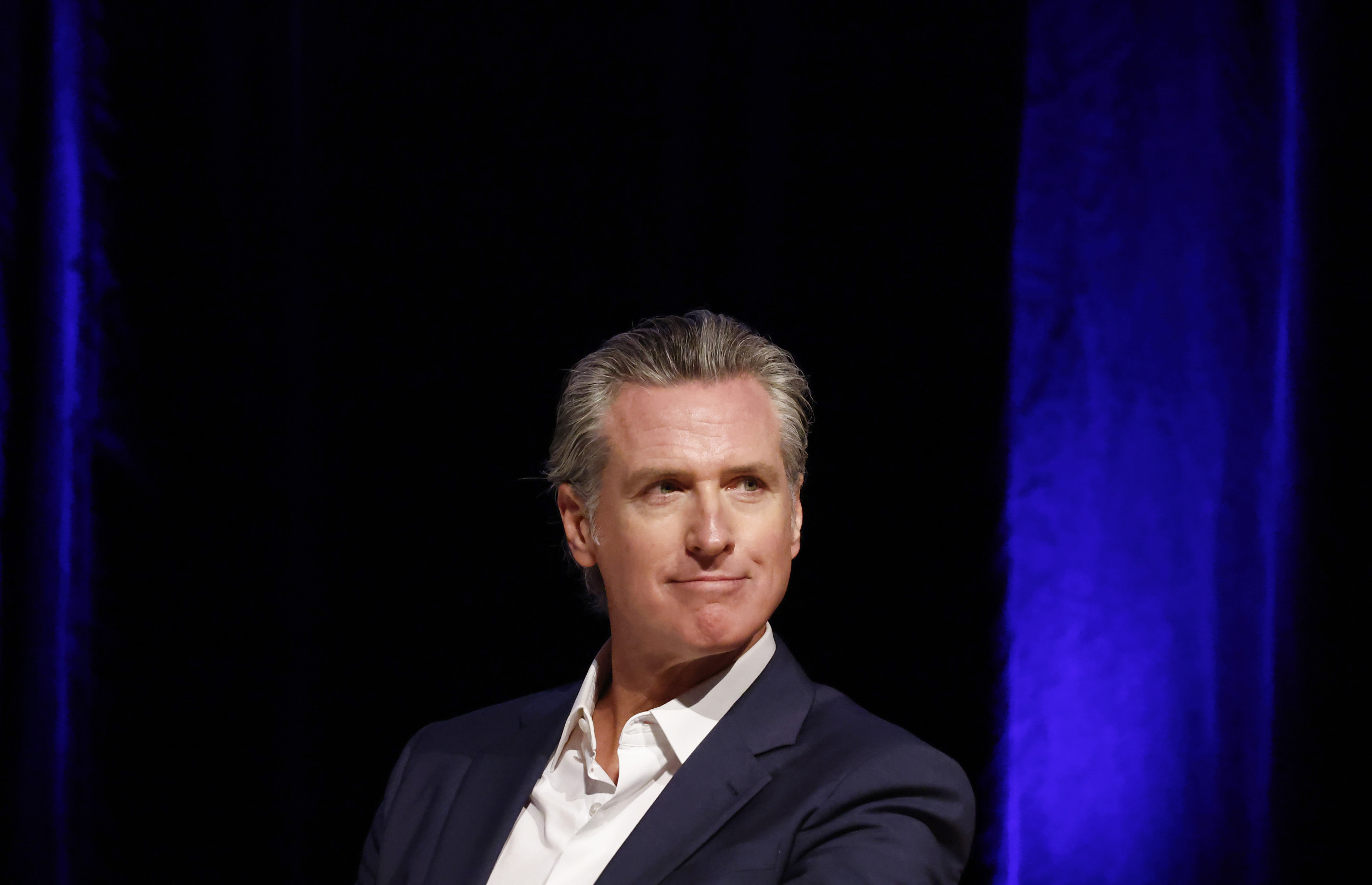🎙️ Voice is AI-generated. Inconsistencies may occur.
Canadian immigration lawyers have advised people traveling to the United States to bring a burner phone with them amid tensions between the two countries.
The warning comes after people have reported having their phones searched at the border, and a French researcher made headlines after being denied entry to the U.S. due to Customs and Border Protection (CBP) finding messages on his phone criticizing President Donald Trump.
Other nations that have historically been allies of the U.S. have also changed their travel notices for people going to America to advise LGBTQ+ people on changing norms, and to warn about an increase in border detentions for visa holders.
Why It Matters
Canada's relationship with the U.S. has grown increasingly fractious, in part because of Trump's imposition of tariffs on the country and his repeated threats to transform it into the U.S.'s "51st state."
A reported trend has occurred of temporary visa holders and visitors being detained by U.S. border officials on their way into the country amid heightened immigration enforcement under the Trump administration. Meanwhile, concerns have also surfaced that free speech is no longer a defense when it comes to legal immigration status.

What To Know
Immigration lawyers Heather Segal and Ravi Jain, recently spoke with CBC News about their advice to Canadians traveling to the U.S.
They both said they advise Canadians to travel with a burner phone and even to leave their regular phone at home.
According to the American Civil Liberties Union (ACLU), although law enforcement usually needs a warrant to search devices, CBP is different.
CBP has the freedom to seize any device at the border, regardless of citizenship, and either do a "basic" search at the airport or hold it for a prolonged period of time for a "forensic" search.
During these searches, CBP can scroll through text messages, social media comments, and any other methods of communication. They can also download devices to scan them later on their own servers.
Jain said he's advising some of his clients who have been critical of Trump online, especially people who were born overseas, not to go to the U.S. at all.
Canadians are not the only people being urged to travel with burner phones. According to The Guardian, Americans who are traveling overseas for academic conferences are bringing their own burner equipment to avoid confrontation at the border when they return.
However, not all lawyers agree with Jain and Segal's advice.
Janice Flynn, Principal Lawyer at Flynn Hodkinson, a US visa and immigration firm in London, told Newsweek that this advice creates "more confusion and fear."
"Advice should be given on what a person should expect at a US port of entry. If a person is concerned about having their electronic devices at the US border, they should exercise caution with the devices they have with them," said Flynn.
Attorney Ioana Hyde from the American Immigration Law Office in London, reiterated to Newsweek that visitors to the US " have always been subject to the potential risk of additional questioning and searches at the border, including smart phone searches," adding "What appears to be new is the frequency with which this is happening under the current administration, potentially increasing the odds of being further scrutinised."
Hyde also stressed that all visitors to the US should make sure they do not have any images or text messages that could be construed as incriminating.
She told Newsweek: "I recall a case several years ago where a client received a photo of drugs from a friend as a joke message, the photo was automatically downloaded on her phone, and CBP denied this individual entry into the United States due to believing that she was involved with drugs, despite this not being the case. The more documents and photos a person has stored on their smartphone, the greater the potential risk, and therefore the more mindful a person may want to be about curating their phone contents prior to US travel, or even travelling with a dedicated "travel phone"."
Canadians are not only concerned over phone searches but are also angry about the Trump administration continually referring to their country as the "51st State."
People who have chosen not to go to the U.S. this year have cited a wide variety of reasons from economic instability, detainments, long visa wait times, and threats to annex Canada.
CBP data from February 2025 found that nearly 500,000 fewer people traveled across the land border between Canada and the U.S. compared to February 2024.
The drop in Canadian tourism to the U.S. is already having an impact on American businesses, especially in northern states such as Maine.

What People Are Saying
Heather Segal told CBC News: "To protect yourself, more so now than ever, I think it is a great idea to take a burner phone, to not take your technology, to not take anything on your technology that you would be afraid of any government entity knowing or having. The concept of privacy is completely different when you enter the United States."
Ravi Jain told CBC News: "It's a very scary time. I think people need to be a bit more aware that the U.S. is not messing around."
Maine Democratic state Representative Lori K. Gramlich in a press release in late February: "If Canadians are unwilling to visit Maine because of our deteriorating relationship, or if Canadians are unable to visit Maine because they have less disposable income to spend here due to the economic impact of the current president's policies, it will directly harm Old Orchard Beach and communities like ours. Our local businesses are likely to see reduced revenues and higher levels of uncertainty. Local workers may have reduced hours and income during the busy season they rely on to make ends meet. Lodging, hospitality, retail and dining establishments are at risk, and businesses and workers in all sectors will feel the ripple effect through the economy."
A White House spokesperson told CNBC: "Everybody wants to come to President Trump's America."
Janice Flynn told Newsweek: "I have been advising clients that the requirements to enter the US are the same as they have always been. When a non-US citizen is requesting entry into the US, there is no guarantee they will be admitted. The process is a very human process where a person will be interviewed by a CBP Officer so I must take into consideration many factors including how well a person may be able to respond to verbal questioning. Whether I'm going to tell a person traveling into the US that should carry a burner phone depends on many factors. Millions of people are admitted to the US each month and a very small percentage of these entrants have their devices searched."
Ioana Hyde told Newsweek: "Personally, I do not think that all visitors to the USA need to use 'burner phones,' but this advice is predicated on an assumption that their phones do not store materials of a concerning nature—photos of or messages discussing drugs or illegal activities or violations of US immigration rules."
What Happens Next?
Canada announced retaliatory tariffs on Thursday in response to Trump's "Liberation Day" tariffs, which included a 25 percent auto tariff on Canada.
Prime Minister Mark Carney has called snap elections for April 28. U.S.-Canada relations are expected to be a defining issue in the upcoming election, as parties grapple with rising tensions and national sovereignty concerns.
Update 04/07/2025 11:57 am ET: This story was updated to include comment from Janice Flynn, Principal Lawyer at Flynn Hodkinson, and attorney Ioana Hyde from the American Immigration Law Office.
About the writer
Sophie Grace Clark is a Live News reporter based in London, with a focus on crime stories. She has also ... Read more




